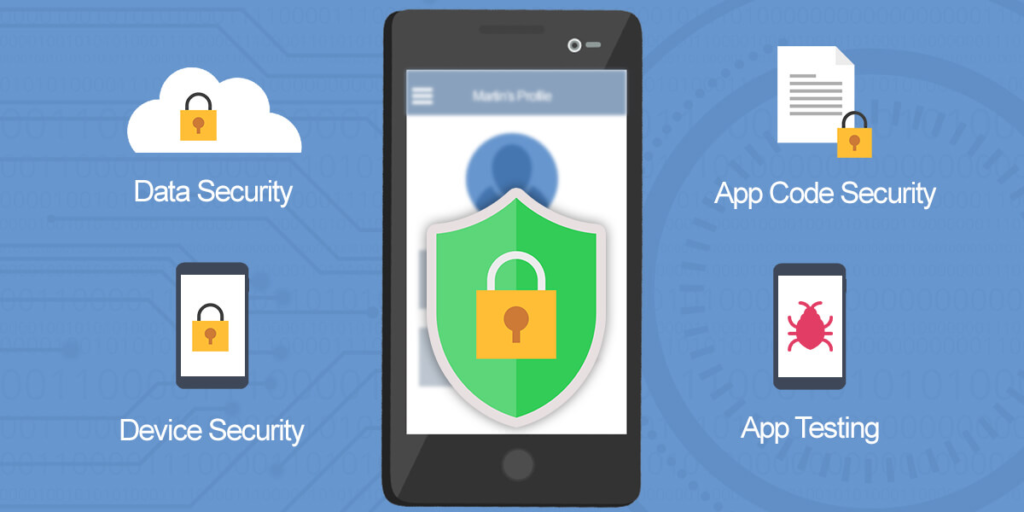App security in mobile applications is more than just a feature or a benefit, it’s a bare necessity. For businesses, even a single breach of security can cost them a lifetime of trust and millions of dollars. This is the reason why app security remains the top priority for App developers from the moment they start writing the first line of code.
In today’s age, we share all kinds of life-critical information with our smartphones and mobile app, and this private information is floating about in the ether and is accessible to a slew of cybercriminals. With a single break-in, these cybercriminals could access all your information from your home addresses, name, age, account number, and even your current precise location.
With these kinds of risks and dangers concerned with the breach of mobile app security, developers need to make necessary efforts to protect their users and clients. Here’s how Atimi Mobile App Development Toronto can implement mobile app security in 8 efficient ways

1. Write a Secure Code
Any bugs and vulnerabilities in a code could be the starting point for most attackers on the internet. With the help of reverse engineering, they can tamper with your code and all they have to do is access the public copy of your app. According to research, at any given time, over 11.6 million mobile devices are getting affected by malicious code.
While writing your code, always keep in mind the security of your code and from day one try to harden your code, to make it tough enough to avoid any break-ins. Test rigorousnly to find and fix bugs, in order to make your code easier to update and patch design it accordingly, use code hardening and code signing and make sure to keep your code agile so it can be updated after a breach at the user end.
2. Encrypt All Data
Encryption is a great way of ensuring the protection of your private information. Therefore, it is crucial to encrypt every single unit of data getting exchanged over your app. Encryption can be defined as a way of scrambling plain text, that has no meaning to anyone except the ones with the key. In this way, even if your data is stolen after a security breach, there is nothing that hackers can read or misuse.
3. Deploy Tamper-Detection Technologies
There are some technologies that warn you with a set of alerts whenever someone tries to tamper with your code or insert malicious code. These active tamper-detection technologies will help you ensure that the code does not function at all if modified.

4. Use High-level Authentication
Weak authentication is the root cause of some of the biggest security breaches. Therefore it is becoming extremely important to use stronger authentication. Authentication can be defined as personal identifiers or passwords that act as barriers to entry. This may be dependent on the user’s end but as the app owner or the developer, you can encourage them to use the authentication feature.
5. Be Extra Cautions with Libraries
If you are using third-party libraries then make sure to test the code thoroughly before using it in your application. This is because some libraries can prove to be fatal for your app and can cause security breaches.
6. Test Repeatedly
Testing is an important step of the process. It should be done rigorously and repeatedly to find any new bugs or threats so that developers can find their solutions and secure the app. As a business owner, you can also inbvest in threat modeling, penetration testing, and emulators to test your application repeatedly for vulnerabilities.
7. Deploy Proper Session Handling
“Sessions” on mobile phones last longer than they do on your computer. This makes it harder for the server to do the session handling. To identify a session, it is recommended to use tokens instead of device identifiers. They offer more security, in case of lost and stolen devices, tokens can be revoked at any time.

8. Use Authorised APIs Only
Unauthorized and loosely coded APIs are less secure as they unintentionally grant privileges to hacker that can be easily misused. Authorized APIs not only offer more security but they also make it easier for coders to use them.











FIND US ON SOCIALS